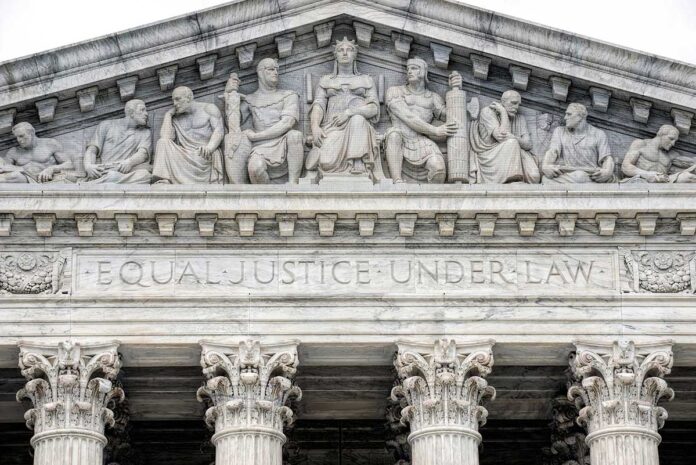A dark time for America was ushered in by the Supreme Court the week of the summer solstice. Minutes after Roe v. Wade was overturned, former acting Solicitor General Neal Katyal called it “as devastating a ruling as can be imagined.”
The theft of women’s bodily autonomy on 6/24 will scar the calendar like 9/11.
Every generation of activists must learn to channel rage productively; but as the ruling sank in, rage threatened to devour many of us.
In some states, rape victims will have to carry their rapists’ babies to term. Girls impregnated by their fathers will have to bear their siblings. Women who suffer miscarriages will be treated as murder suspects. Fertility treatments will be banned. Menstrual periods will be surveilled. On the very day of a states’ rights ruling, Mike Pence endorsed a nationwide ban. The previous day’s gun ruling raised fresh prospects of MAGA fanatics shooting up clinics in blue states.
A few years ago, skeptics mocked warnings of a dystopian nightmare like the one portrayed in Margaret Atwood’s “The Handmaid’s Tale.” Are they laughing now?
Religious bullies appear bent on plunging us into horrors befitting a Hieronymus Bosch painting. The attendant fear and violence threaten civic cohesion.
The ruling penned by Justice Samuel Alito, awful enough by itself, raised alarms about what other rights were in the Court’s crosshairs. Justice Clarence Thomas suggested in a concurring opinion that all rights stemming from substantive due process should be reversed, including contraception, gay sex, and marriage equality. He did not mention Loving v. Virginia; but why should his interracial marriage not succumb to the purge he fosters, just as Robespierre’s turn came at the guillotine?
Advocates of forced birth point out that privacy is not mentioned in the Constitution. Neither, as it happens, is the right to marry. Nor is Alito’s claim that unenumerated rights must be “deeply rooted in this Nation’s history and tradition,” a newly minted test that (surprise!) privileges white men. But liberty is mentioned. Due process is mentioned. Equal protection is mentioned.
Alito’s tendentious history cannot justify abortion bans starting at conception, even if our liberties were circumscribed by the views of 18th century men awash in sexism and slavery. For centuries the dividing line was the moment of quickening, when the mother first felt her baby move in her womb, around sixteen to twenty weeks.
My sisters’ rights are not legitimately changed by a stolen court’s overreach, any more than were mine prior to Lawrence v. Texas depending on which state I made love in. Whether Obergefell stays or goes, my spiritual bond with my fiancé can never be broken by official denial and scorn.
The high court is packed with a radically unrepresentative majority that violates its own stated principles from one day to the next as it strives to justify desired outcomes. They are authoritarians, not philosophers. Their operative principle is the raw pursuit of power.
But power does not belong exclusively to this Court surrounded by riot fencing. The right to vote is a hard-won franchise too many fail to exercise. That must now change.
An abortion care underground is forming, even as fighters for women’s equality prepare to battle resurgent criminalization in courts and statehouses. Until now, Democrats were hamstrung by over-caution. At long last we may be getting our fight on.
“This is not over,” said Vice President Kamala Harris not eighteen months after becoming the first woman in that office. New York’s first female governor, Kathy Hochul, spoke similarly. Older women are telling of harrowing efforts in their youth to obtain legally denied healthcare. Meanwhile, people who cried “My body, my choice” in rejecting masks and vaccines during a pandemic vow to hunt down women and their helpers for invoking the same principle.
The truth is that unlike airborne viruses, abortion is not catching. But the love of freedom is.
History haunts us. If you visit author F. Scott Fitzgerald’s grave in the old Saint Mary’s churchyard in Rockville, Maryland, you will find nearby a gravestone from 1695. That was a few years after the Salem witch trials that drew inspiration from British jurist Sir Matthew Hale, a proponent of persecution whom Alito cites without embarrassment or shame.
Carved above Fitzgerald’s grave is the last line of The Great Gatsby, which has new resonance as the call of freedom summons us to risk our own once again: “So we beat on, boats against the current, borne back ceaselessly into the past.”
Richard J. Rosendall is a writer and activist at [email protected].
